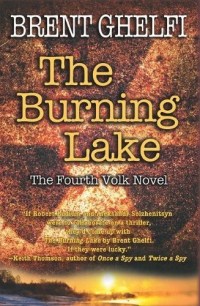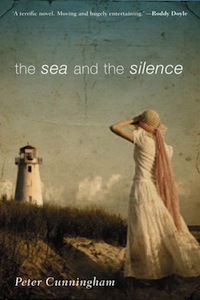The White Woman on the Green Bicycle by Monique Roffey
 Wednesday, April 27, 2011 at 8:56AM
Wednesday, April 27, 2011 at 8:56AM 
First published in the UK in 2009; US edition published by Penguin on April 26, 2011
The White Woman on the Green Bicycle tells a story in four parts. The first takes place in 2006. Written in the third person, it introduces the reader to a married couple, George and Sabine Harwood, both age 75. Originally from the UK, they have lived in Trinidad for fifty years. Their maid's son, Talbot, has been beaten by the local police for complaining about an officer's theft of his cell phone. George, a feature writer for a Trinidadian newspaper, resolves to help Talbot. The three parts of the novel that follow are written in the first person from Sabine's perspective. The first begins in 1956 when George and Sabine are fresh off the boat, George having accepted a three year employment contract. Like the European architecture the colonialists have imported to the island, Sabine is "hopelessly at odds with her environment." She resolves to stick it out and soon attains fame as the white woman who rides everywhere on her green bicycle. The novel continues to tell Sabine's story in a section that begins in 1963, when Trinidad is on the verge of independence. The final section takes place in 1970, when dissatisfaction with the island's governance has produced an empowerment movement that expresses itself in violence.
Sabine is a contradictory character. She loves her husband (sometimes) and hates him (sometimes); her animosity toward him oddly increases her passion for him. Sabine is jealous of Trinidad; she fears (probably correctly) that George loves the country more than he loves her. She feels empathy for the plight of Trinidadians living in squalor but at the same time is often frightened of them. She always feels like an outsider, a feeling that is encouraged by Trinidadian resentment of white colonialism. She bonds with her black servants while encouraging them to feel oppressed. Drawn to his political charisma, Sabine begins writing letters to Eric Williams (Trinidad's first prime minister and also a character in the novel) but never mails them (except for the last one, written after her second meeting with him). She writes the letters for company, describing them as "a record of my loneliness and despair." She loves her children (one of whom she sends to boarding school in England) but we read little about them; they don't appear to be a focus of her life. In fact, her life seems to lack focus. As her husband tells her, she's full of complaints. Many of those are justified: George is unfaithful, he drinks too much, and he doesn't consult her before making life-altering decisions. Still, Sabine does little to change her life until the book's last section. She supports political empowerment of Trinidadians but fails to empower herself.
I found the gap between 1970 (when the novel ends) and 2006 (when it begins) to be frustrating; I wanted to know more about what happened in those years so I could better understand the first section. I thought the novel's first section (particularly George's efforts to help Talbot) was its best, yet the story drops Talbot as a character; we never learn what happens to him, making much of the first section seem superfluous. That section is written in a lighthearted tone; once the novel delves into the past it becomes more serious but also less interesting. I admire Monique Roffey's desire to address important questions -- racism, colonial exploitation of the island's resources and inhabitants, ongoing corruption and the failure of political reform after independence -- but we see these issues through Sabine's hazy eyes and her appreciation of them comes across as genuine but superficial.
Roffey's prose is clear but her narrative voice is not distinctive (although she occasionally produces a gem like "This was a nation of sin-loving people who made a point of praying for forgiveness"). On the other hand, her phonetic rendering of the local dialect is masterful; it brings life to the Trinidadian characters. If those characters had been at the novel's heart rather than Sabine, I would likely have enjoyed it more; it's Sabine's story but she's the least interesting character.
As I read The White Woman on the Green Bicycle, my response alternated between mild pleasure and indifference. I didn't dislike the book but I'm not sufficiently enthusiastic about it to give it a strong recommendation.
RECOMMENDED WITH RESERVATIONS



